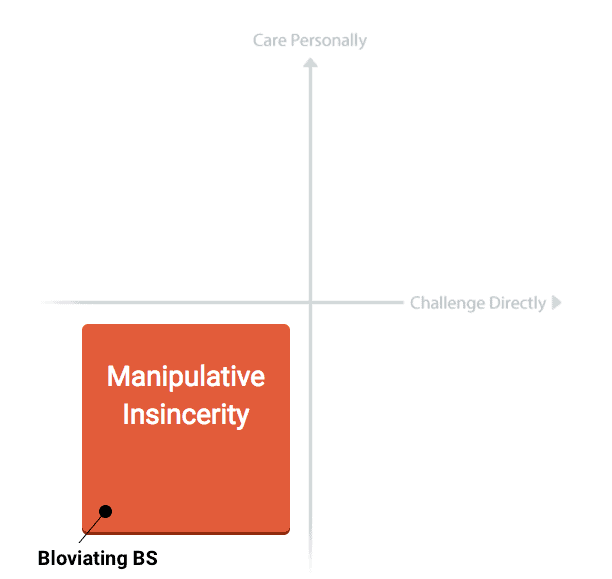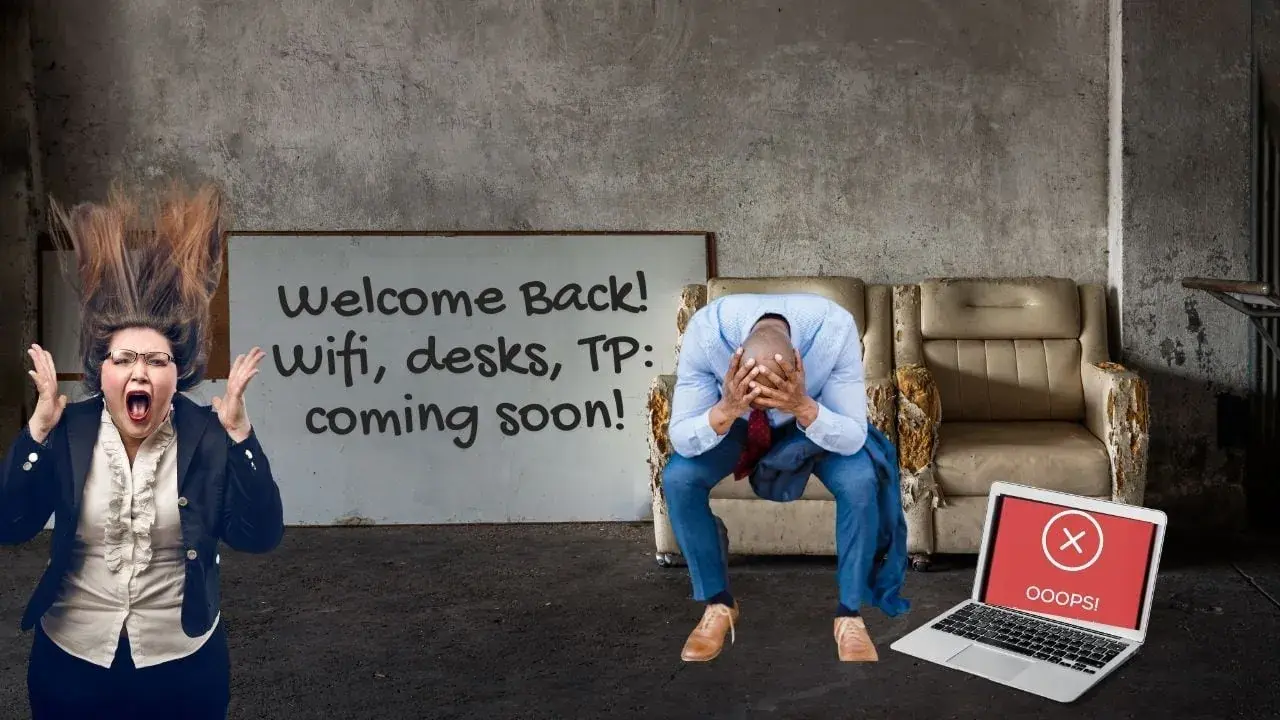Return to Office: A Human-Centered Approach Rooted in Radical Candor
By Brandi Neal, Radical Candor podcast writer and producer, and director of content creation for Radical Candor. As companies enforce ...

Radical Candor can be applied not just in feedback conversations, but in all interactions. Think for example about Radical Candor during meetings, brainstorming, public relations, etc. Each of these types of communications have their own unique challenges related to Radical Candor. For example, here’s a tricky situation sent to us by a reader:
As an entrepreneur, pre-funding, having invested a great deal of life-savings into our young business, putting it all on the line to pursue my dream, I am immersed in three types of conversations in which radical candor is particularly challenging:
1) As I complete my funding presentation and begin to meet potential investors & make a case for why they should support us;
2) Simultaneously, reaching out to potential key members of a senior team, seeking an agreement to come on board when funding is secured;
3) At the same time, continuing to encourage current fans to spread the word about our games and tell others to buy them.
Conventional entrepreneurial wisdom is all about "faking it 'til you make it", which is really just a euphemism for lying. I'm not talking about outright financial misrepresentations or the like, even though most advice about that is given with a wink and a nudge. It's more a matter of how you frame things - "selling the dream".
I am determined to make this triple-bottom line company work without sacrificing moral integrity.
The challenge is, potential investors & potential team-members (I'm talking to industry veterans who have been "around the block") actually expect entrepreneurs to lie, exaggerate & gild the lily, so, if you start w the truth, you start w a big disadvantage.
How best to deal with that?
And, wrt one's public face, how to keep fans close & the media happy without pretending one is rolling in profits and fighting off Google & Apple at every turn?
-- David Galiel, Founder and CEO, Elbowfish
David,
Thank you for a GREAT question. One of the most depressing things about our world is that, all too often, bloviating BS (as I call what you describe) really does work, even when everyone knows it’s nonsense. As Harry Frankfurt wrote in his fantastic essay On Bullshit,
“One of the most salient features of our culture is that there is so much bullshit. Everyone knows this. Each of us contributes his share. But we tend to take the situation for granted. Most people are rather confident of their ability to recognize bullshit and to avoid being taken in by it. So the phenomenon has not aroused much deliberate concern, or attracted much sustained inquiry. In consequence, we have no clear understanding of what bullshit is, why there is so much of it, or what functions it serves...The realms of advertising and of public relations, and the nowadays closely related realm of politics, are replete with instances of bullshit so unmitigated that they can serve among the most indisputable and classic paradigms of the concept.”
In his effort to provide a “theory” of BS, Frankfurt distinguishes it from a lie. He says the essence of BS is that it is: “unconnected to a concern with the truth.” BS exhibits a kind of mindlessness, a disconnection from reality, that is in many ways even more insidious than a lie.
The problem with BS, according to Frankfurt, is that it:
“offers a description of a certain state of affairs without genuinely submitting to the constraints which the endeavor to provide an accurate representation of reality imposes. [The] fault is not that [it] fails to get things right, but that [it] is not even trying.”
Unfortunately, bloviating BS works especially well in a “hot” market where it’s less likely to get challenged.

“BS” is way on the wrong end of the “challenge directly” axis. It’s not a just about hiding what one thinks or even actually lying about what one thinks, it’s totally unconcerned with what the best answer might be. In the worst cases it simply ignores objective reality.
The fact it’s “bloviating” both worsens its value on the “challenge directly” axis and means it’s way on the wrong end of the “care personally” axis. The people spouting it are more focused on making themselves look good rather than caring personally about the person/people they’re talking to.
In extreme cases, the bloviator is preying on the emotions of the person/people they’re talking to. Bloviating entrepreneurs, for example, are usually preying on greed and the fear of missing out. At its best, bloviating BS (like all cases of Manipulative Insincerity) is harmless. At its worst, it can be very dangerous.
The good news is that Radical Candor works better than bloviating BS in the long run, even though the long run can seem a long time coming sometimes.
L.J. Rittenhouse, CEO of Rittenhouse Rankings, is the inventor of Candor Analytics. Her financial linguistic research over the past 15 years shows that companies led by CEOs who ranked highest in Candor, significantly outperformed the market and also those ranked lowest in Candor. Her book Investing Between the Lines (McGraw-Hill 2013) was endorsed by Warren Buffett, and it describes the methodology used to score key words, phrases and concepts and identify positive and negative value indicators. A total Candor score reveals the amount of truth and BS in executive communications. Her research is so solid she’s in discussions to create the first ever Candor Investment Fund. It will find companies with leaders who are more candid, more trustworthy and achieve better overall performance.
It can be scary to try Radical Candor when it feels like you’re swimming in a sea of exaggerated nonsense. However, I’ve found that in hiring some truly amazing people, in raising money from shrewd Venture Capitalists for two start ups, and even once working with Seth MacFarlane in Hollywood, Radical Candor won the day. Here are three tips for navigating:
If you suspect the last ten people have claimed a market is $10 billion and you believe it to be $100 million, say so. Announce your intention to play a different game.
Establish your credibility by sharing information the person you’re speaking to may not know. Use this credibility to focus on facts and a quest for the truth than a big story.
Don’t prey on the insecurities and weakness of the people you’re meeting with. Show that you understand what they care about, and prove that you care about it too -- if you really do. Appeal to their better instincts, and don’t be afraid to show your own.
Hopefully these tips are helpful and inspire you to stick to your instinct for Radical Candor. Readers, if you have additional tips for David, please share them in the comments!

By Brandi Neal, Radical Candor podcast writer and producer, and director of content creation for Radical Candor. As companies enforce ...

When talking about Radical Candor, I often get asked about how it applies to different cultures. Can Radical Candor be used for feedback and...

Edited By Brandi Neal, Radical Candor podcast writer and producer, and director of content creation for Radical Candor. This article about the...